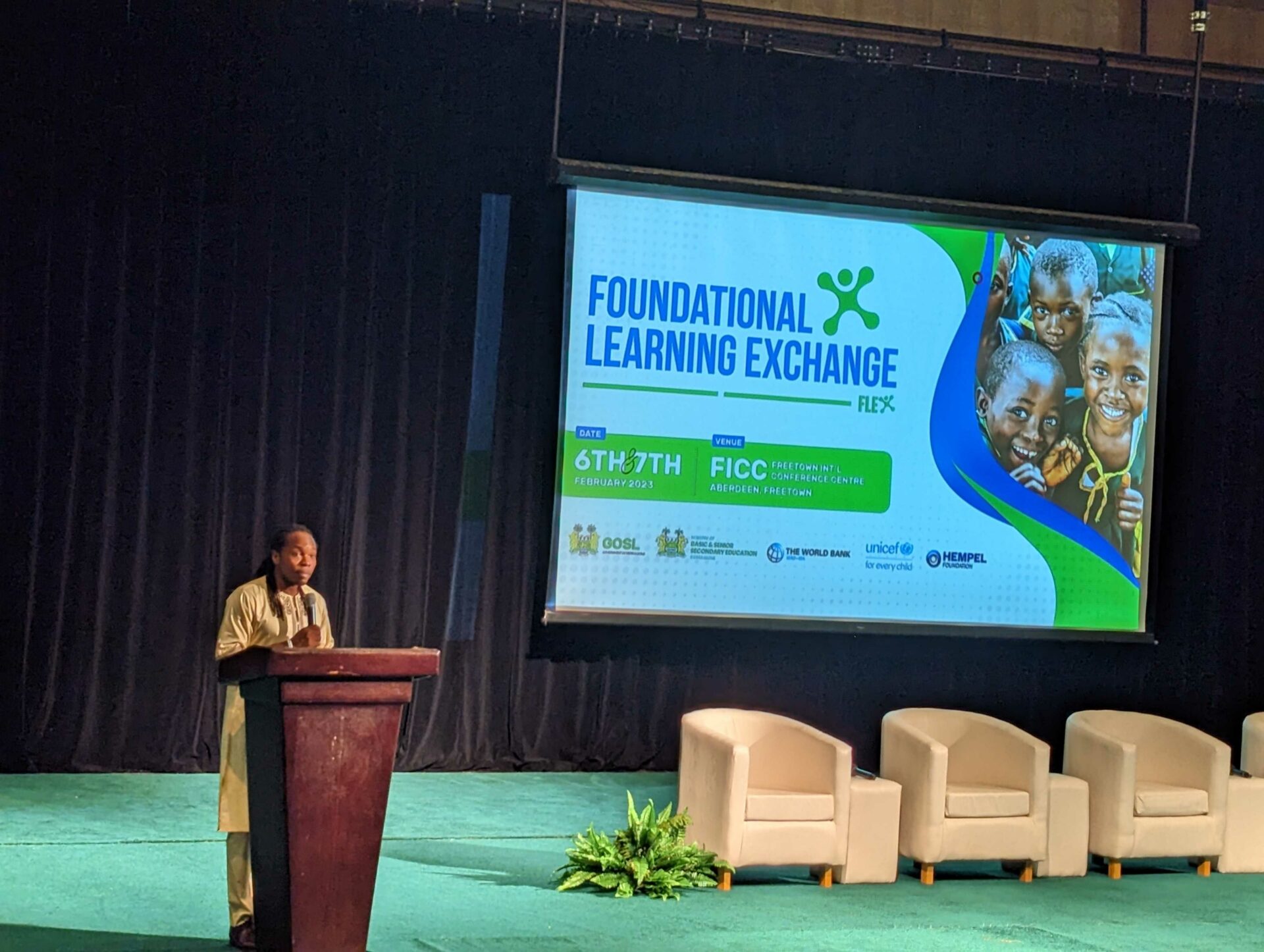I am just back from almost three weeks in Sierra Leone, Liberia, and Malawi — seeing our schools, convening our board, and meeting with ecosystem actors who support our work (governments, implementing partners, and multi-lateral institutions). While it is a miracle that we can use tools like Zoom to shrink the world and collaborate across time zones, you just can’t replace being on the ground and having in-person connections with our stakeholders.
Foundational Learning Exchange
In Sierra Leone, there was an inaugural convening of the Foundational Learning Exchange where something quite extraordinary happened. Firstly, countries took the critical step of acknowledging the dire state of their educational systems where, according to the World Bank, 9 out of 10 children cannot read a sentence with comprehension by age 10. Secondly, leaders from eight of the countries in attendance took the bold step of committing to decrease learning poverty by 50 percent by 2030. The collective urgency and momentum to tackle the learning crisis are unprecedented.
The challenge is that even with the acknowledgment of the problem and a commitment to take action, solutions that have proven to be effective, scalable, and sustainable in these severely resource-constrained environments are elusive.
Overcoming Systemic Barriers to Learning
Imagine Worldwide addresses this challenge as we work with sustainable solutions that overcome systemic barriers to foundational learning. Our model is evidence-based, massively scalable, and serves the most marginalized children. Imagine recently completed our eighth Randomized Control Trial and all studies have shown not only substantive gains in literacy and numeracy but also improvements in attendance, enrollment, attitudes toward learning, and gender parity.
In a school in Liberia I visited, the head teacher told me that since the tablets were introduced in September, enrollment is up 30 percent and daily attendance has spiked from 55 percent to consistently over 95 percent. This is in stark contrast to a school that we will soon be launching in Freetown, Sierra Leone, where enrollment in Grade 1 was 115 children (55 boys/60 girls) and plummeted to only 27 (with only nine girls) by Grade 6. The implications of children being more engaged, coming to school more often, and staying in school for longer are profound — especially for girls.
Ripple Effects
During my meetings with government leaders and other local stakeholders over the past three weeks, they expressed great excitement about the ancillary benefits of our tablet program, including bringing solar power to communities for the first time, upskilling the education workforce with critical digital skills, and creating local jobs related to the installation and maintenance of the technical infrastructure. So while our program improves learning for students from the beginning, the sum of these additional benefits prepares education systems to embrace future technological innovations.
Assisting Governments in Scaling and Sustaining Innovations
My last week was in Malawi, where we are supporting the government to deliver on the first phase of the BEFIT program (Building Education Foundations through Innovation & Technology). This program is bringing education technology to all 6,000 primary schools and 3.5mm standard 1-4 learners over the next six years. We recently procured 80,000 tablets and over 1000 solar power systems to equip the first phase of 500 schools serving 300k primary students.
The work in Malawi is centered on a systems-strengthening approach where, from the start, the government is the primary implementing organization with temporary support from Imagine and the other consortium partners. We were encouraged to learn that the government has commenced the budgeting process to start paying the recurring costs of the solution in Year 2 — well ahead of our original plans. This approach will ensure that the BEFIT program will be sustainably owned, operated, and funded by the government long after Imagine and other third-party support has ended.
The visits reinforced the importance of Imagine’s role in helping governments scale innovation. This role includes two critical and often missing functions:
- Ecosystem coordinator = the connective tissue that aligns and coordinates the disparate stakeholders and is singularly focused on ensuring the work gets done
- Early-stage funder = the funder that builds a critical mass of students and schools and generates country-specific evidence of impact
Importantly, we position these roles as temporary. We are the rare NGO that is looking to work ourselves out of a job as quickly as possible once the system has built the capacity and infrastructure to support sustainable scale.
With Gratitude
I am so grateful to have the privilege of waking up each day to work on this important challenge in partnership with an incredible team, board, and network of partners. I come back from this long trip believing more than ever in the power of these solutions and the critical role Imagine is playing in helping education systems and communities best serve their children.
Thank you for your support.
Joe.
